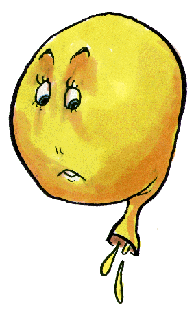 Urinary incontinence can lead to lower self-esteem and even kidney damage.
Urinary incontinence can lead to lower self-esteem and even kidney damage.
Researchers from Hopital Jeanne de Flandre in Lille, France evaluated the effect of a biofeedback-training program in children with a long history of voiding disorders.
First, the details.
- 60 children with voiding disorders not due to neuropathic disease (nerve disorders) were treated.
- Symptoms included daytime incontinence, urgency, and nighttime incontinence.
- 62% of the children had a history of urinary tract infections
- 37% of them also had vesico-ureteral reflux (when urine backs into the ureters and/or kidneys).
- During 10 weekly sessions they were given instructions on toilet behavior and posture, and pelvic floor training.
- They documented voiding frequency and liquid intake.
- The biofeedback technique placed electrodes between the anus and genitals.
- The exercises focused on relaxation of the perineum.
And, the results 6 months after the last session.
- 96% of the children with daytime incontinence and 83% of the children with nighttime incontinence were cured or improved.
- 84% of the children were free from infection.
- Vesico-ureteral reflux was cured in half of the patients.
After 21 months.
- 8% of the children with daytime incontinence and 33% with night-time incontinence relapsed.
- There was a significant difference between primary (cause not known) and secondary (due to an underlying condition) enuresis (involuntary urination).
- A breakthrough urinary tract infection occurred in 19% of patients.
The bottom line?
The authors concluded, “This non-invasive training program was effective in the treatment of daytime incontinence, urinary tract infection, and vesico-ureteral reflux.”
In addition, an improvement in secondary enuresis was observed. However, additional support sessions seem necessary to prevent relapse.
More on urinary incontinence is here.
10/26/08 21:45 JR